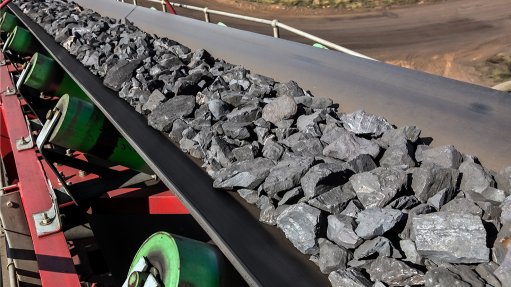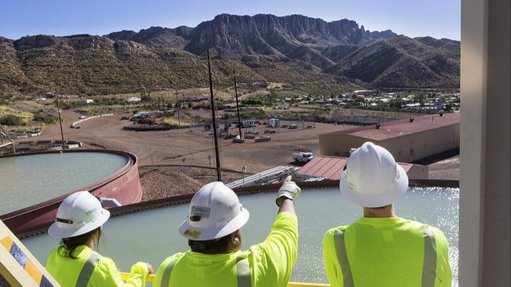Amendment Bill in limbo, but processes crucial


WARREN BEECH Renewed consultation might eliminate some of the concerns on the Mineral and Petroleum Resources Development Act Amendment Bill
While stakeholders are waiting for the Mineral and Petroleum Resources Development Act (MPRDA) Amendment Bill to pass into law, it is important to not only comply with the current version of the MPRDA, but also to take into account the proposed amendments, comments Hogan Lovells partner and head of mining Warren Beech.
He says mining companies need to accommodate the proposed amendments, in compliance and business planning, where practically possible.
Beech explains that the key benefits are that the stakeholders and, in particular the mining companies, can include anticipated costs of compliance in budgets and staffing requirements, and begin constructively engaging with the Department of Mineral Resources on how to properly manage the transition to avoid being saddled with unnecessary noncompliance orders and stoppages of operations.
He stresses that some stakeholders might be frustrated by the slow progression of the amendments to the MPRDA, however, it is crucial that the National Assembly (NA) and National Council of Provinces (NCOP) follow the required processes to ensure that constitutionally valid legislation is passed, thereby reducing the likelihood that the legislation will be challenged in court.
The Portfolio Committee on Mineral Resources recommended to the NA in a report publicised in November that the initial public consultation period, in 2014, in the NCOP and provincial legislatures, had been inadequate and would not pass constitutional muster. Therefore, the public consultation process that accompanies the Bill’s referral to the NCOP will begin anew and until these public hearings have been concluded, the progression and signing of the Amendment Bill cannot be concluded.
Prior to these public hearings, nine provincial briefings have to take place. The Western Cape, KwaZulu-Natal, North West and Mpumalanga have conducted their briefings, while the Eastern Cape had scheduled a briefing for December 9. The Free State, Limpopo, Northern Cape and Gauteng should conduct briefings within the next few weeks.
Thereafter, all nine provincial legislatures will schedule public hearings on the Amendment Bill.
Beech says the renewed consultation might eliminate some of the concerns expressed by stakeholders in the South African mining industry on the MPRDA Amendment Bill, which has been subject to legislative processes since 2013.
Issues with the MPRDA
Beech explains that the Bill, published for comment in 2012, aims to amend the resultant ambiguities of the 2008 MPRDA Amendment Act, thereby providing for the improved regulation of associated minerals, allowing for the partitioning of rights and enhancing provisions regarding minerals beneficiation.
Associated minerals refer to any mineral that occurs in mineralogical association with and in the same core deposit as the primary mineral being mined in terms of the mining right, where it is physically impossible to mine the primary mineral without also mining the mineral associated therewith.
“Historically, if the holder had not applied for and been granted a right for the associated minerals, these were automatically excluded and another party could apply for rights in respect of those minerals,” Beech notes.
Further, the term beneficiation is also to be amended to include the transformation, value addition or the downstream beneficiation of a mineral to a higher-value product that can either be consumed locally or exported over baselines to be determined by the Mineral Resources Minister.
He adds that Section 26 of the MPRDA is to be amended to ensure that, before any minerals designated by the Minister are exported, the exporter has secured the Minister’s written consent and complied with the stipulated conditions. It also places an obligation on producers of the designated minerals to offer a percentage of the minerals to local beneficiators, and empowers the Minister, after taking into account national interest, to determine the percentage of and pricing conditions for these minerals.
“Regulations and guidelines will be developed, setting out the criteria to be used by the Minister to determine the levels of beneficiation, relevant percentages and developmental pricing conditions.”
Beech concludes that the Bill proposes the deletion of Section 9 of the MPRDA, which provides for the “first come, first served” principle in relation to applications for rights, and its being substituted with a provision that the Minister must, by notice in the Gazette, invite applications for rights.
“The invitation process is intended to ensure coordinated quality approvals by the department that meaningfully contribute towards fulfilling the objectives of the MPRDA,” he concludes.
Comments
Press Office
Announcements
What's On
Subscribe to improve your user experience...
Option 1 (equivalent of R125 a month):
Receive a weekly copy of Creamer Media's Engineering News & Mining Weekly magazine
(print copy for those in South Africa and e-magazine for those outside of South Africa)
Receive daily email newsletters
Access to full search results
Access archive of magazine back copies
Access to Projects in Progress
Access to ONE Research Report of your choice in PDF format
Option 2 (equivalent of R375 a month):
All benefits from Option 1
PLUS
Access to Creamer Media's Research Channel Africa for ALL Research Reports, in PDF format, on various industrial and mining sectors
including Electricity; Water; Energy Transition; Hydrogen; Roads, Rail and Ports; Coal; Gold; Platinum; Battery Metals; etc.
Already a subscriber?
Forgotten your password?
Receive weekly copy of Creamer Media's Engineering News & Mining Weekly magazine (print copy for those in South Africa and e-magazine for those outside of South Africa)
➕
Recieve daily email newsletters
➕
Access to full search results
➕
Access archive of magazine back copies
➕
Access to Projects in Progress
➕
Access to ONE Research Report of your choice in PDF format
RESEARCH CHANNEL AFRICA
R4500 (equivalent of R375 a month)
SUBSCRIBEAll benefits from Option 1
➕
Access to Creamer Media's Research Channel Africa for ALL Research Reports on various industrial and mining sectors, in PDF format, including on:
Electricity
➕
Water
➕
Energy Transition
➕
Hydrogen
➕
Roads, Rail and Ports
➕
Coal
➕
Gold
➕
Platinum
➕
Battery Metals
➕
etc.
Receive all benefits from Option 1 or Option 2 delivered to numerous people at your company
➕
Multiple User names and Passwords for simultaneous log-ins
➕
Intranet integration access to all in your organisation



















